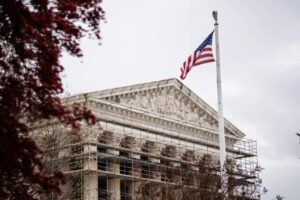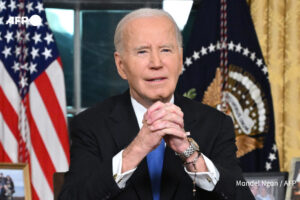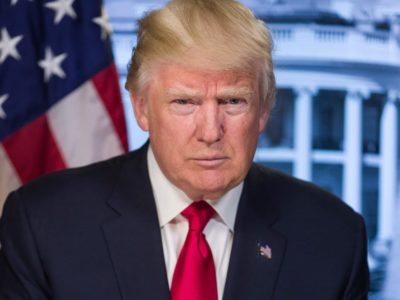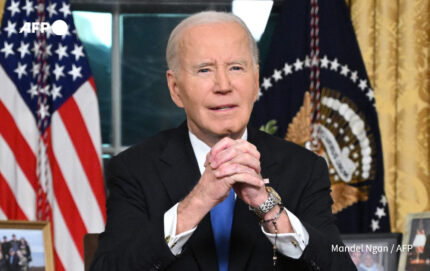The Trump 2024 campaign has reported a significant breach in its internal communications, alleging that Iranian hackers are responsible for the attack. This revelation surfaced after the campaign discovered that confidential documents, including sensitive internal research on Ohio Senator and vice-presidential candidate JD Vance, had been illegally obtained. The news was first reported by Politico, which received the hacked documents via email from an anonymous source.
In a statement to the opitanglobamedia, a campaign spokesperson expressed concerns about the breach, suggesting that it was orchestrated by foreign entities hostile to the United States with the intent to interfere in the upcoming 2024 election. The spokesperson emphasized the seriousness of the situation, stating, “These documents were obtained illegally from foreign sources hostile to the United States, intended to interfere with the 2024 election.” Despite the gravity of the claims, the campaign has not provided concrete evidence directly linking the breach to Iranian operatives or the Iranian government.
Microsoft Report Raises Alarms on Iranian Cyber Influence
The Trump campaign’s allegations come on the heels of a report by Microsoft’s Threat Analysis Center (MTAC), which highlighted a spear-phishing attack targeting an unnamed U.S. presidential campaign in June. The MTAC report detailed how Iranian hackers had attempted to gain access to campaign data by sending a deceptive email designed to trick recipients into clicking on a malicious link. Although Microsoft did not explicitly name the Trump campaign, the timing and nature of the attack strongly correlate with the campaign’s recent announcement.
Steven Cheung, a spokesperson for the Trump campaign, linked the June hacking attempt to the timing of President Trump’s selection of his vice-presidential nominee, stating, “The Iranians know that President Trump will stop their reign of terror just like he did in his first four years in the White House.” This statement reflects the campaign’s belief that Iranian actors are actively trying to undermine Trump’s re-election bid due to his hardline stance against Iran during his previous administration.
The MTAC report also noted that Iranian cyber-enabled influence operations have been a persistent threat in the last three U.S. election cycles, underscoring the ongoing risk posed by foreign interference in American electoral processes.
Escalating Concerns Over Iranian Influence and U.S. National Security
The breach has not only raised concerns about the security of the Trump campaign’s communications but also about the broader implications for U.S. national security. The leaked documents, including a 271-page dossier on JD Vance, contain detailed analyses of his past statements and political record, with Politico highlighting that some of Vance’s previous criticisms of Trump were identified as “potential vulnerabilities.” The fact that such sensitive information has been compromised and disseminated underscores the sophisticated nature of the cyber threats facing U.S. political campaigns.
In addition to the cyberattack, U.S. security agencies have recently warned of an Iranian plot to assassinate Trump, which, although not connected to last month’s attempted shooting in Pennsylvania, adds another layer of complexity to the threats posed by Iran. Furthermore, the U.S. Department of Justice charged a Pakistani national with ties to Iran with plotting to assassinate U.S. officials, including the former president, further illustrating the dangerous interplay between cyber and physical threats.
As the 2024 election approaches, the Trump campaign’s revelations, combined with warnings from cybersecurity experts, highlight the urgent need for robust defenses against foreign interference. The situation serves as a stark reminder that the integrity of U.S. elections remains a prime target for hostile actors, with significant implications for national security and the democratic process.
Iran’s Alleged Retaliatory Motives
The Trump campaign’s allegations against Iran are not without context. The Iranian government has long been suspected of orchestrating cyberattacks against its adversaries, particularly in response to perceived threats or retaliatory motives. The 2020 drone strike ordered by Trump, which killed Revolutionary Guard General Qassem Soleimani, remains a significant point of contention. Iran has repeatedly vowed to retaliate against Trump and other U.S. political figures for the assassination, raising the possibility that the recent hack could be part of a broader strategy to avenge Soleimani’s death.
Recent developments further complicate the situation. Last week, the U.S. Justice Department unsealed charges against a Pakistani national with ties to Iran, accused of plotting assassination attempts against U.S. political figures, including Trump. These charges highlight Iran’s continued efforts to target individuals it considers enemies, potentially linking these activities to the broader cyber campaigns aimed at disrupting the 2024 U.S. election.
Media and Public Reaction to the Hack of Trump Campaign Internal Communication documents
The hacking incident has prompted mixed reactions from the media and the public. Politico, the first outlet to report on the hack, revealed that it began receiving emails from an anonymous AOL account on July 22, containing what appeared to be internal campaign documents related to JD Vance. The Trump campaign quickly condemned the leak, stating that the documents were obtained illegally and intended to interfere with the election. Cheung warned that any media outlet reprinting the leaked documents would be aiding America’s enemies.
Despite these warnings, the incident has sparked widespread debate about the implications of foreign interference in the U.S. electoral process. The Microsoft report’s findings, combined with the Trump campaign’s allegations, have heightened concerns about the integrity of the 2024 election. As the campaign season intensifies, the possibility of further cyberattacks and leaks looms large, posing significant challenges to the security and stability of U.S. democracy.














